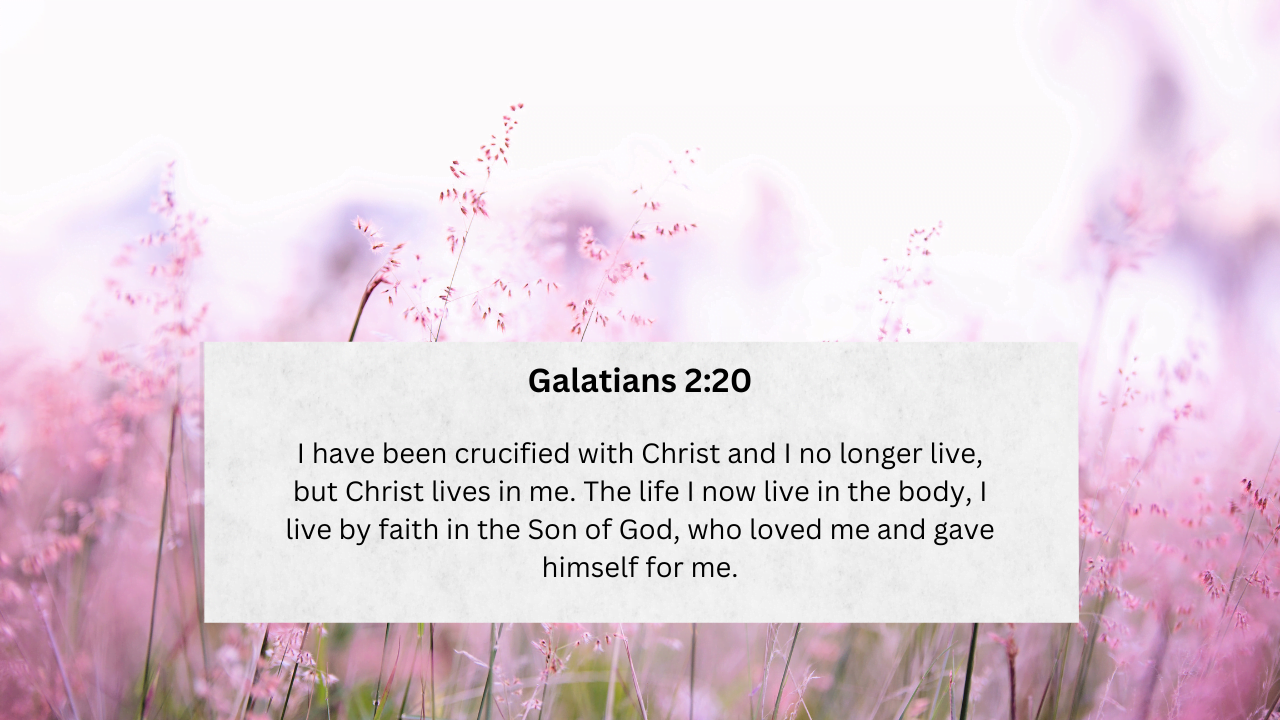No products in the cart.
Transformative Faith: Understanding Galatians 2:20 and Living in Christ’s Love
ADVERTISEMENT
This post contains paid and/or affiliate links. I make a small commission at no extra cost to you. Please see our Privacy Policy.
A strong and insightful verse that captures the spirit of Christian identity and the transformative force of religion is Galatians 2:20. “I have been crucified with Christ, and I no longer live, but Christ lives in me,” the text says. I have confidence in the Son of God, who loved me and offered himself for me to sustain me in this body that I currently inhabit.”
At its core, this verse speaks to the believer’s spiritual rebirth through their connection with Christ. The phrase “I have been crucified with Christ” signifies a symbolic death to one’s former self. It suggests a profound and radical transformation that occurs when an individual embraces the teachings and sacrifice of Jesus. This crucifixion with Christ implies a surrender of the old, sinful nature, paving the way for a new life rooted in faith.
The subsequent assertion, “I no longer live, but Christ lives in me,” underscores the idea of spiritual union. It conveys that the believer’s identity is no longer defined solely by their self but is now intertwined with the presence and teachings of Christ. This shift in perspective implies a selfless way of living, guided by the principles and example set by Jesus.
ADVERTISEMENT
“The life I now live in the body, I live by faith in the Son of God” emphasizes the centrality of faith in Christian living. The believer’s existence is marked by a conscious reliance on faith, trusting the Son of God for guidance, strength, and purpose. This reliance on faith extends beyond mere intellectual acknowledgment and permeates one’s life–shaping choices, attitudes, and actions.
The concluding phrase, “who loved me and gave himself for me,” encapsulates the core of Christian theology – the sacrificial love of Jesus. The verse reminds believers of the profound love that led to Christ’s ultimate sacrifice on the cross. This love becomes the cornerstone of their faith, motivating a reciprocal love and commitment to live by the teachings of the Son of God.
Galatians 2:20, which emphasizes the death of the old self, the indwelling of Christ, the dependence on faith, and the response to the selfless love of Jesus, essentially captures the Christian path of change. It acts as a compass for Christians, encouraging them to genuinely live out their faith and demonstrate the transformational power of Christ’s love in their day-to-day existence.
ADVERTISEMENT











